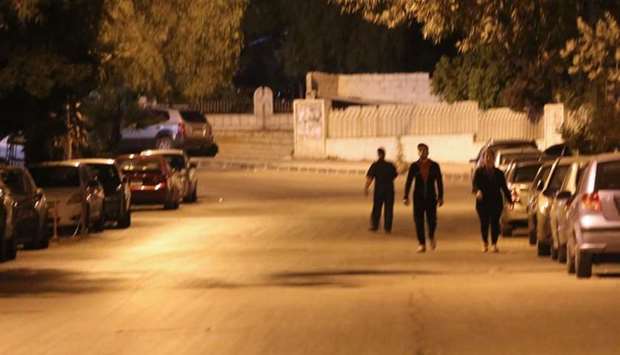The Syrian opposition said on Saturday Western missile strikes would not be enough to change the course of the seven-year-old civil war, and the army said it would crush remaining rebel-held parts of the country.
The action by the United States, Britain, and France targeted President Bashar al-Assad's chemical weapons capabilities in response to a deadly poison gas attack near Damascus a week ago, Washington said.
But rebels and opposition politicians said the Western powers should also have hit Assad's conventional weapons which have killed many more people during the war.
"Maybe the regime will not use chemical weapons again, but it will not hesitate to use weapons...such as barrel bombs," opposition leader Nasr al-Hariri said in a Tweet.
A rebel fighter said he was bracing for further attacks by the government with its allies on rebel territory in the northwest, which a senior Iranian official has indicated could be the next target.
"I am expecting an escalation by the regime against civilians in Idlib and in the areas of northern Syria and the liberated areas, because the regime always takes revenge on civilians," the rebel told Reuters from Hama province.
"More was expected from the American strike to affect the path of the war and to curb Assad's crimes."
Damascus and its allies have said reports about poison gas in Douma were fabricated as a pretext for Western strikes.
The suspected gas attack, which medical relief groups said killed dozens, led rebels holed up in Douma to finally surrender the town. That clinched a big victory for Assad by wiping out the last insurgent pocket in the eastern Ghouta region near the capital.
The war has been going Assad's way since Russia intervened on his side in 2015. From holding less than a fifth of Syria in 2015, Assad has recovered to control the largest chunk of the country with Russian and Iranian help.
The Syrian presidency posted a video appearing to show Assad arriving for work on Saturday morning a few hours after the US-led attack, dressed in a suit and tie and carrying a briefcase.
Though swathes of Syria remain beyond his grasp, the insurgency currently poses no military threat to his rule.
The opposition has praised President Donald Trump for taking action against Assad after criticising former US President Barack Obama for failing to enforce his own red line when Assad was accused of using gas in 2013. But they want more.
"The strike has weakened the regime, but has not strengthened the opposition," said a second rebel commander.
Trump last year decided to halt a CIA programme that had funnelled weapons and cash to rebel Free Syrian Army groups.
"Liberating Idlib"
Having driven rebels from eastern Ghouta, Assad and his allies are expected to soon retake the last few insurgent pockets around Damascus and nearby.
The bigger challenge will be rebel territory at the frontiers with Turkey, Jordan and Israel, and the swathe of eastern and northern Syria which Kurdish-led militias control with support from the United States.
Ali Akbar Velayati, top adviser to Iran's Supreme Leader, on a visit to Damascus this week, said he hoped Syria and its allies would soon drive US troops from the country. He also said he hoped the city of Idlib in northwestern Syria would be captured from rebels very soon.
The Syrian army said the United States, Britain and France launched nearly 110 missiles on targets in the capital Damascus and other territory, and air defence systems brought most of them down.
"Such attacks will not deter our armed forces and allied forces from persisting to crush what is left of the armed terrorist groups," the military said.
The foreign ministry said the Western strikes would only "lead to inflaming tensions in the world" and threaten international security.
"The barbaric aggression ...will not affect in any way the determination and insistence of the Syrian people and their heroic armed forces," state media cited an official source in the ministry as saying.

